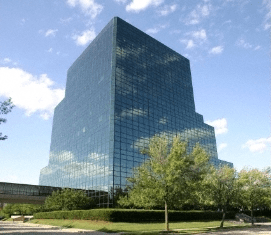1. Be Ready, Willing and Able to Walk Away
The biggest mistake many tenants make is not developing legitimate alternatives to their first choice, whether a new space or a lease renewal. If a landlord believes you’re not willing to switch to a different property, you lose your negotiating leverage.
2. Start the Process Early
Time should be your ally, not your enemy during negotiations. Landlords know that the managers of other buildings can take six to eight months to create a space plan, get construction pricing, agree on a rental rate, prepare a lease document and ready the space for occupancy. If you wait too long before asking for a renewal proposal, you’re telling the landlord that you’re not considering any other options.
3. Know the Whole Picture Before You Start Negotiations
Is the office building being sold? Is the largest tenant moving out? How much free rent did the last tenant get? Does the building have HVAC or parking problems? What is the landlord’s financial situation? Candid, complete answers may not be forthcoming from the landlord or his broker. Expert research can make sure that what you don’t know won’t hurt you.
4. Make Landlords Compete For Your Business
The key to a successful negotiation is creating competition between your current landlord and other landlords in the area. You should have an experienced advisor providing the proper market research, lease comparables and the negotiating skill to use that information to create leverage for you.
5. It’s In Your Best Interest To Have A Tenant Representative Negotiate For You
Unless you’re a real estate professional, it’s not a good idea to negotiate a lease deal directly with the landlord’s broker. An experienced tenant representative will help ensure that you receive the best possible rates, terms, incentives and lease clause protections. Remember, the landlord’s representative negotiates leases every day; you may do it once every 3 to 4 years!
6. Hiring A Tenant’s Representative Doesn’t Cost You More Money, But It Can Save You Money
Occasionally a landlord will “try to save you some money” by discouraging you from engaging a tenant representative. Don’t be fooled. He’s not doing this out of the goodness of his heart. He knows that without a tenant representative you’re more likely to be in the dark about market rates and terms, and less likely to shop the market, or consider other alternatives. That means more money in the landlords pocket.
7. Make Sure You Are Comparing Apples To Apples
Business owners who are not experienced with commercial real estate often find it difficult to perform a true “apples to apples” comparison of different facility choices. Lease terms such as full service gross, modified gross, triple net, tenant improvement allowances, rental abatement, escalations, base years, operating expense stops and loss and load factors can obscure the true amount you’re paying and make legitimate comparisons difficult. A good tenant representative will sort through all this for you.

